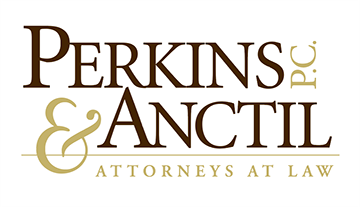Pursuant to a not often discussed provision of New Hampshire law (R.S.A. 356-B:70) a perpetual committee exists for purposes of advising the New Hampshire legislature on the laws relating to condominiums and homeowners associations (the “committee”). The committee is comprised of members of the legislature. As President-Elect of the CAI New Hampshire Chapter, I have had occasion to attend some of the recent public hearings of the committee. The committee intends to finalize recommendations and draft legislation for changes in R.S.A. 356-B within the next few months. I offer the following information regarding discussions from the public hearings and expectations of the potential proposed legislation. This is not a summary of the potential proposed legislation, as the same has neither been completed nor released. Further, this article is for informational purposes and conveys the opinions of its author. It is not meant to convey the position of CAI New Hampshire with respect to the matters mentioned herein.
A subject high atop the list of the committee’s priorities is the establishment of a licensing system for property managers. The committee is under the impression that the volume, variety and severity of the complaints received alleging improprieties by property management agents in New Hampshire establishes a condition that must be addressed. Licensing would likely be linked with educational requirements for initial applicants and continuing educational requirements for renewals. Licensing will likely take place on an individual basis, meaning that a company license will not serve to cover the various property managers employed by the company. Some New Hampshire property managers have expressed support for such a licensing system. These managers believe that the education and training linked to the licensing system will serve to increase the overall professionalism of the industry.
Also high on the priority list of the committee is the establishment of a “grievance board”. This board would not undertake the process of determining the outcome of unit owner disputes but rather of determining whether or not the dispute possesses sufficient merit to warrant legal proceedings. The board is envisioned as being comprised of a variety of members including legislators, an attorney and unit owners. The unit owner members would be from a variety of types of New Hampshire condominiums and home owners associations. Some members of the board would be appointed by the Governor of New Hampshire and others would come from other sources. Those in the industry will likely find it hard to imagine how such a board, once “open for business”, will not be consistently overwhelmed with unit owner complaints.
Other contemplated provisions appear to be ideas aimed at readjusting the balance of leverage between unit owners and associations. For instance, there has been mention of a provision which would impose penalties on association boards for circumventing or manipulating the association’s bylaws without proper involvement of the community. Another would award legal fees to the prevailing party in a dispute between a unit owner and the association. While a “level playing field” has a certain appeal on its face, one wonders whether such provisions will result in an increase in complaints and litigation that associations are forced to confront.
As set forth above, the committee continues to work on these matters. Stay tuned regarding the actual proposed legislation and the position of CAI New Hampshire, both of which will be fully developed in the coming months.
